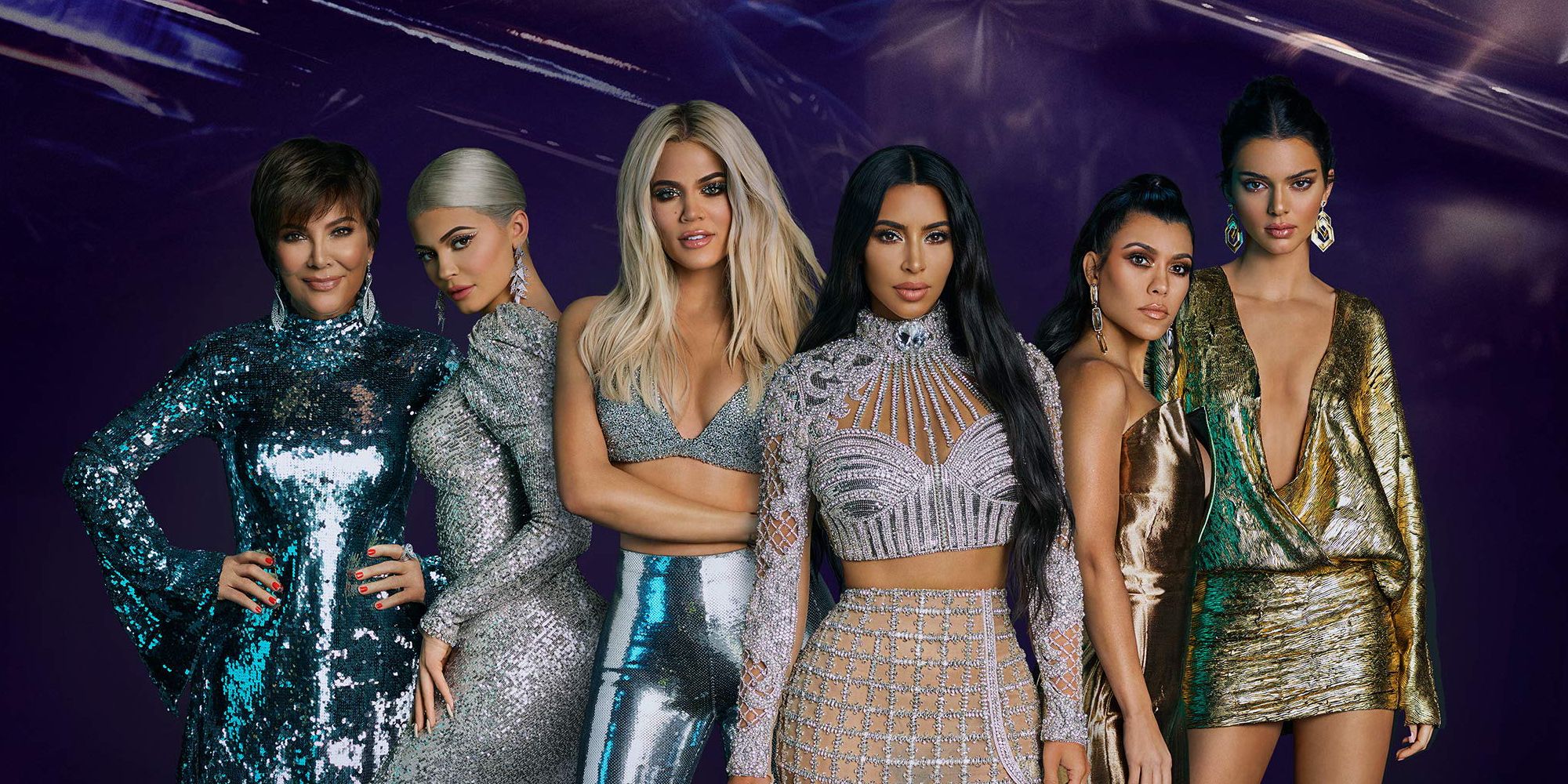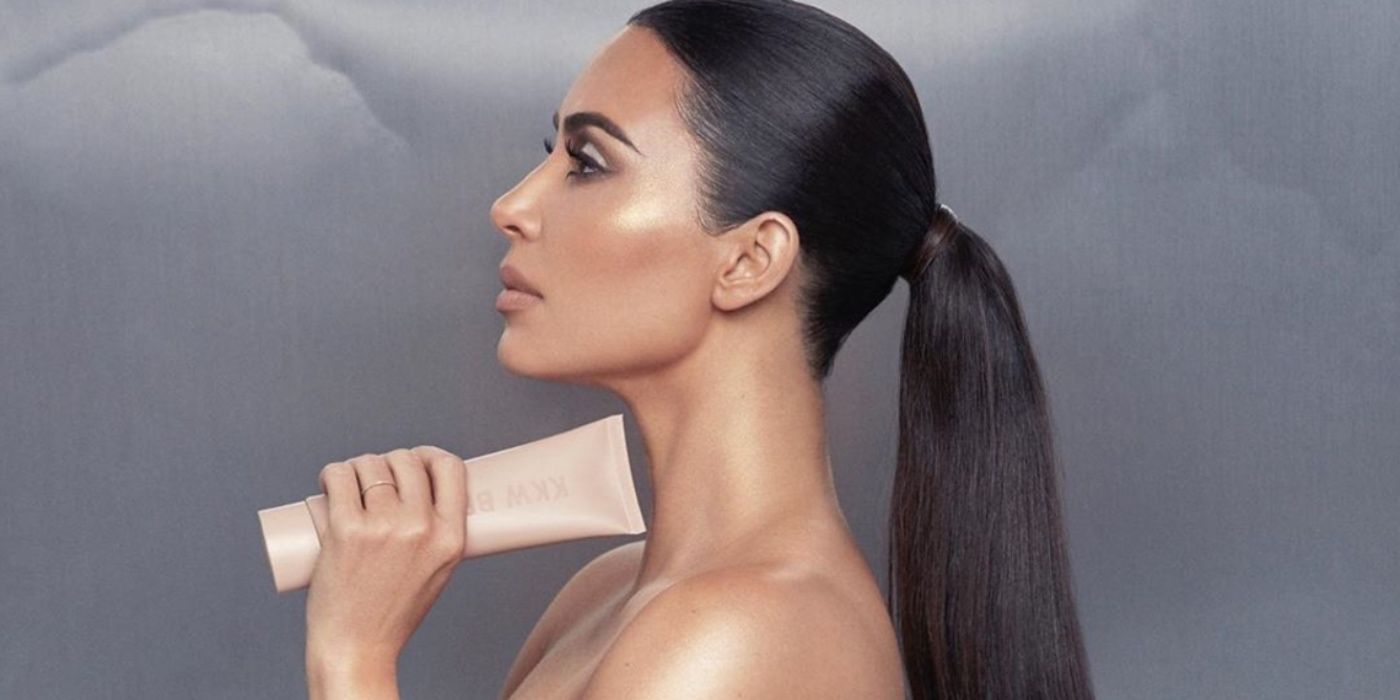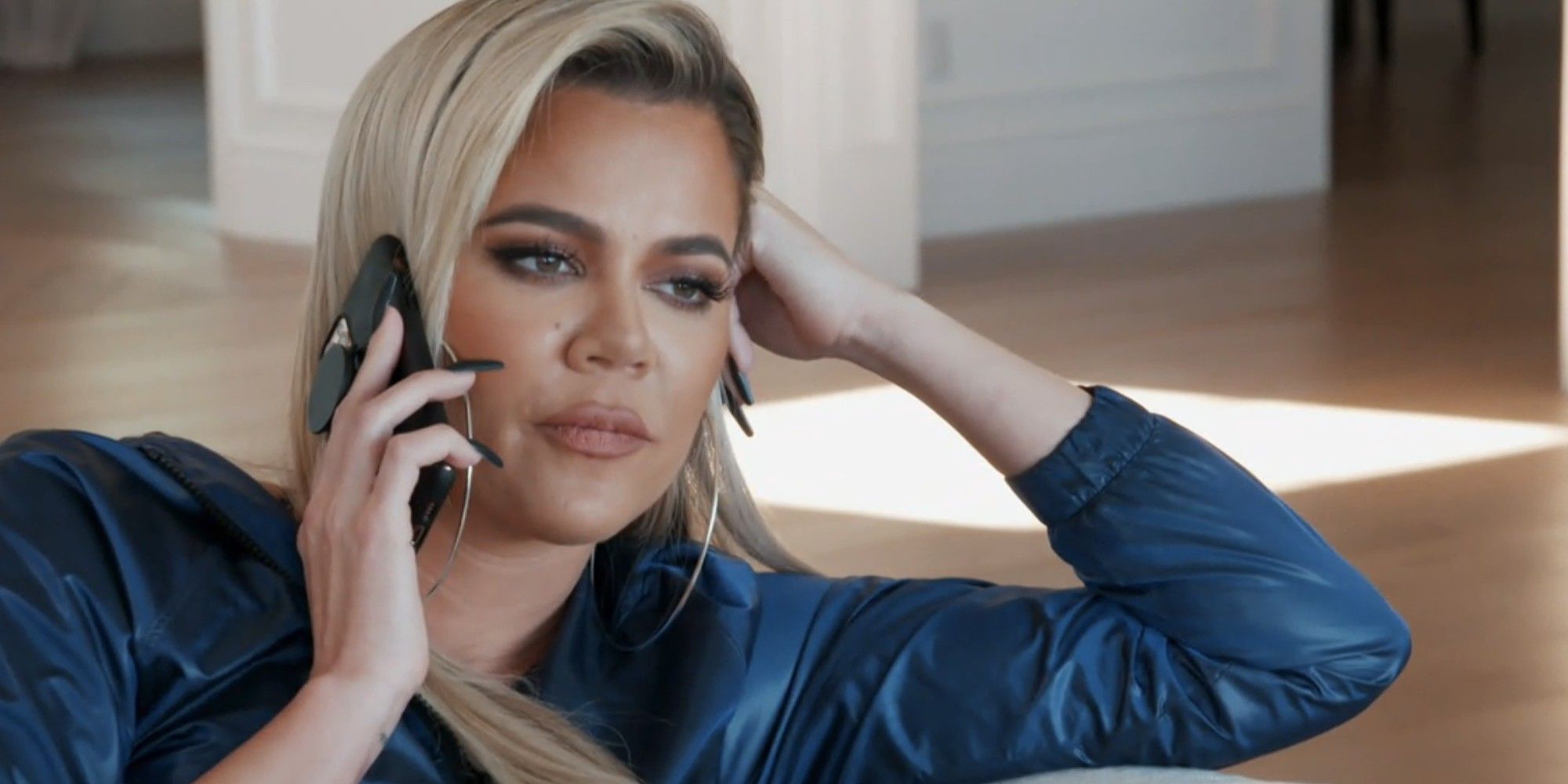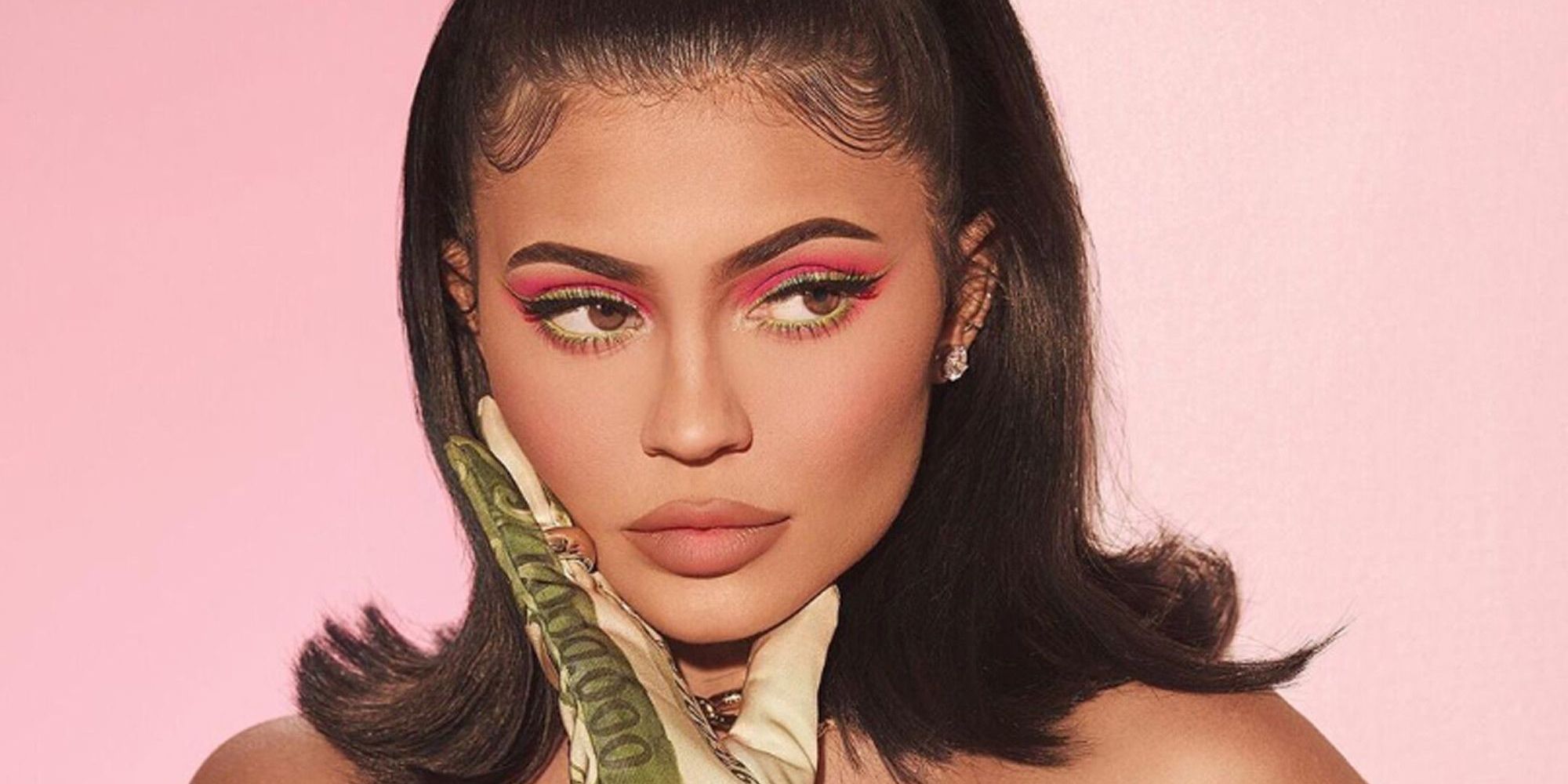The stars of Keeping Up With the Kardashians are known for the massive wealth they’ve been able to amass since the show premiered in 2007. But, some members of the Kardashian clan have stolen from smaller designers to boost their businesses.
Two particularly egregious offenders in this regard are Kylie Jenner and Khloe Kardashian. Most, if not all, of the Kardashian sisters have been accused of appropriating Black culture but these two have allegedly outright copied designs from smaller Black creators. Below are all the times Black designers have accused either of the sisters of design theft— and how it ties into the larger Kardashian brand success.
Kim Kardashian
Many will likely remember Kim's 2014 Paper "Break the Internet" spread. In one photo she held an open champagne bottle and balanced a champagne glass on her rear-end. Kim accomplished said goal and the magazine spread did indeed "break the internet." The spread was photographed and inspired by acclaimed photographer Jean-Paul Goude.
Goude's direction was pulled from a photo in his 1940 photo book, Jungle Fever. The book features a caged Black model growling at the camera on the cover. This imagery likens Black people to animals and is clearly racist although, at the time (24 years before the Civil Rights Act was passed) folks weren't quick to call out racism. The photo in question from the book featured a Black woman with her hair sticking straight up with a bottle of champagne and a glass on her derriere— just like Kim.
This stunt Kardashian pulled increased her level of fame and attention which indirectly lined her pockets with more cash. The problem here is how the image was directly pulled from racist imagery. Kim showed she has no problem associating herself with racist imagery as long as she can profit off of it. In this case, she had sense enough to keep the true origins of her internet-breaking photoshoot under wraps.
Khloe Kardashian
Khloe Kardashian and Emma Greede founded Good American in 2016. The brand had the biggest first-day launch in history with upwards of $1 million in sales in the first 24 hours. The brand was founded to give curvy women more options in sizes that fit and, more importantly, flattered their curves. Greede and Khloe both had trouble finding pants in their size and when they did, they would often have to tailor them to their shape.
On the surface, this seems like a noble cause to address. There wasn’t as much pressure on brands to offer inclusive sizing as there is now when the brand began in 2016. The irony here is that the unspoken target clientele of Good American is women of color, Black women specifically. Black women are naturally more prone to curvy features and in turn have more difficulty finding clothing that fits. The Kardashians, all of whom are not Black, popularized this figure on white and ethnically ambiguous women (often through surgical means). Not to mention, the prices of Good American pieces are not within reach for the majority of women. This is especially true for Black women considering the disproportionately low household wealth of Black women.
On June 2, 2017, clothing designer, Destiny Bleu, aired her grievances with Good American on social media. Bleu alleged Khloe and Greede’s company bought bodysuits, jerseys, and intimates then copied Bleu’s designs for their own brand. Two days later, Good American sent Bleu a cease and desist letter. Bleu hit back with receipts proving her account of the transaction was the truth. The cease and desist letter alleged Good American had never heard of Bleu’s brand and the Good American bodysuit designs were inspired by 1990s fashion.
Refinery 29 published correspondents from 2016 provided by Bleu in a story about the copy-cat designs. At the time, Bleu wasn’t planning on filing a law-suit. Khloe’s assistant, Alexa Okyle, reached out to Bleu to acquire a lookbook for Khloe. First, Khloe ordered a custom jersey and a pair of fishnet tights. Later, Khloe ordered 28 more items for a total of $2,485 in two separate orders. Next, Khloe’s stylist, Monica Rose, contacted Bleu to borrow black and nude bodysuits and bras for a shoot. Bleu claims these items were later copied by Good American. When Bleu saw Khloe wearing a black bodysuit similar to hers on a Good American shoot, she contacted the brand but received no response. While the items Bleu produced and the ones Good American produced are not identical, there are some noticeable similarities, especially in the rhinestone detailing.
Bleu was mum on the issue after Good American sent the cease and desist letter until recently. In late May, d.bleu.dazzled filed a lawsuit against Good American for common law trade dress infringement, misappropriation, fraud and deceit, and unfair compensation. In the complaint, Bleu reveals her company was not aware of the plans for Good American (the company had not been announced yet) and if they were aware of the intended use they would not have sold or lent the garments to Khloe. Trade dress, a sub-category of trademark law, protects the overall image of the product while copyright and patent laws have more strict originality and novelty requirements. Bleu claims the design and arrangement of the rhinestones is specific to the d.bleu.dazzled brand and is not simply decorative in nature. The company is seeking to prevent Good American from further stealing its designs and monetary damages of no less than $10 million.
If d.bleu.dazzled were to win the case, it’d be a hefty sum for Khloe and the Good American brand. On average, the company makes $3.6 million a year meaning the settlement would cost around three years worth of earnings. Khloe is worth approximately $40 million meaning the settlement equates to about a fourth of her total net worth. If the claims Bleu brings forth are deemed to be true and Good American’s trade dress infringement cut potential profits of d.bleu.dazzled, the price is reasonable. Good American has more name-brand recognition and almost certainly has more selling power than Bleu’s brand.
Kylie Jenner
The youngest Kardashian/Jenner is no stranger to profiting off of Black designers and trends. She has frequently come under fire for her hairstyling choices but, like Khloe, she took it a step too far when she outright copied pieces from independent Black designers.
Jenner released a new camo collection for her website TheKylieShop in 2017 one week after Khloe was accused of stealing designs from d.bleu.dazzled. PluggedNYC, an independent Black clothing company alleged Jenner copied the designs of the matching camo sets. Tizita Belamy, the creative director for PluggedNYC saw the collection and leaked receipts revealing Jenner was aware of and was interested in PluggedNYC’s collection before she released her own.
In the communications Belamy released, Jenner’s team said Jenner was a big fan and would like to be gifted a few clothing pieces, the camo bikinis in particular. Jenner’s team even inquired if the brand could make custom items for Jenner. After the ads came out, Belamy accused Jenner’s team of copying the ads she made “down to the shoes” the models wore. Belamy acknowledged her brand didn’t invent camo or the trend but they were one of few, if not the first, team to create matching camo sets in a variety of styles: “I can’t remember one brand that sold matching camo two pieces that weren’t generic tees with cargo for ladies before my brand,” Belamy said. PluggedNYC never filed a lawsuit against Jenner’s company but Jenner did receive much criticism for the obvious similarities.
Jenner, who was once falsely named the youngest self-made billionaire by Forbes, built her wealth by capitalizing on trends started and associated with Black people. She founded her makeup line, Kylie Cosmetics, after filling her lips with filler to make them plumper. Full lips are a signature phenotype of Black women and those with African ancestry. Jenner and her sisters have also been accused of appropriating Black culture and hairstyles on numerous occasions. But when complaints are brought up, they fail to respond to critics.
Source: Refinery 29, Teen Vogue




